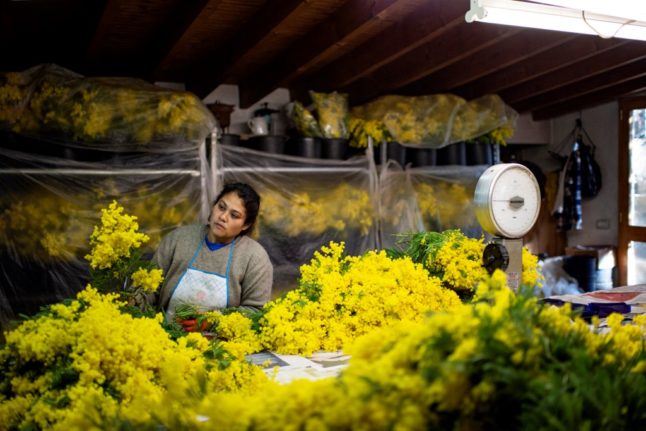The Italian government and opposition parties met on Friday to discuss the contentious issue of a minimum wage, setting a deadline for a decision to be made.
Meloni tasked the National Council for Economics and Labour (CNEL) with creating a bill within sixty days, Italian media reported.
That was the timeframe to find “effective solutions”, and “together”, she stated.
The move came after the ruling coalition government blocked a proposal last month to set a national minimum wage of nine euros per hour.
However, under mounting pressure to address the nation’s meagre salaries, the CNEL will now look into how the government can combat low wages and then present a proposal to parliament.
READ ALSO: Why is Italy’s government opposed to the minimum wage?
Meloni on Saturday attributed poor wages “to Italy’s low growth in the last twenty years compared to France and Germany,” reported newspaper La Repubblica.
The labour council’s president, Renato Brunetta, said in a memo that the organisation will also investigate the underlying problems that stunt pay growth in the country.
This includes delays in public employment contract renewals, high taxes, and widespread insecure or part-time work, which for many is the only option available.
Although Meloni pledged a decision on the minimum wage will be made “by October”, opposition parties were not convinced.
Leader of the Democratic Party (PD) Elly Schlein said that there were “no clear ideas, no proposals”.
READ ALSO: Why Italy has no minimum wage
Populist Five Star Movement leader and former Italian prime minister Giuseppe Conte called the meeting a stalling tactic.
“We came in a constructive spirit to meet the government. Only today there was no counter-proposal: involving the CNEL seems to us a ball thrown into the court,” he said.
He added, “We will go ahead with the collection of signatures for a popular initiative law.”
Italy is one of just a few EU member states that doesn’t have a minimum rate that employers must legally pay staff, along with Denmark, Austria, Finland, and Sweden, and pay is instead set through collective bargaining agreements with unions.
The country has one of the European Union’s lowest rates of wage growth, and the average Italian private sector salary stands at just over 21,800 euros per year according to the most recent available official statistics.
Although the EU passed a new minimum wage directive in 2022 to “ensure decent living standards for workers”, Italy was exempt.



 Please whitelist us to continue reading.
Please whitelist us to continue reading.
Member comments